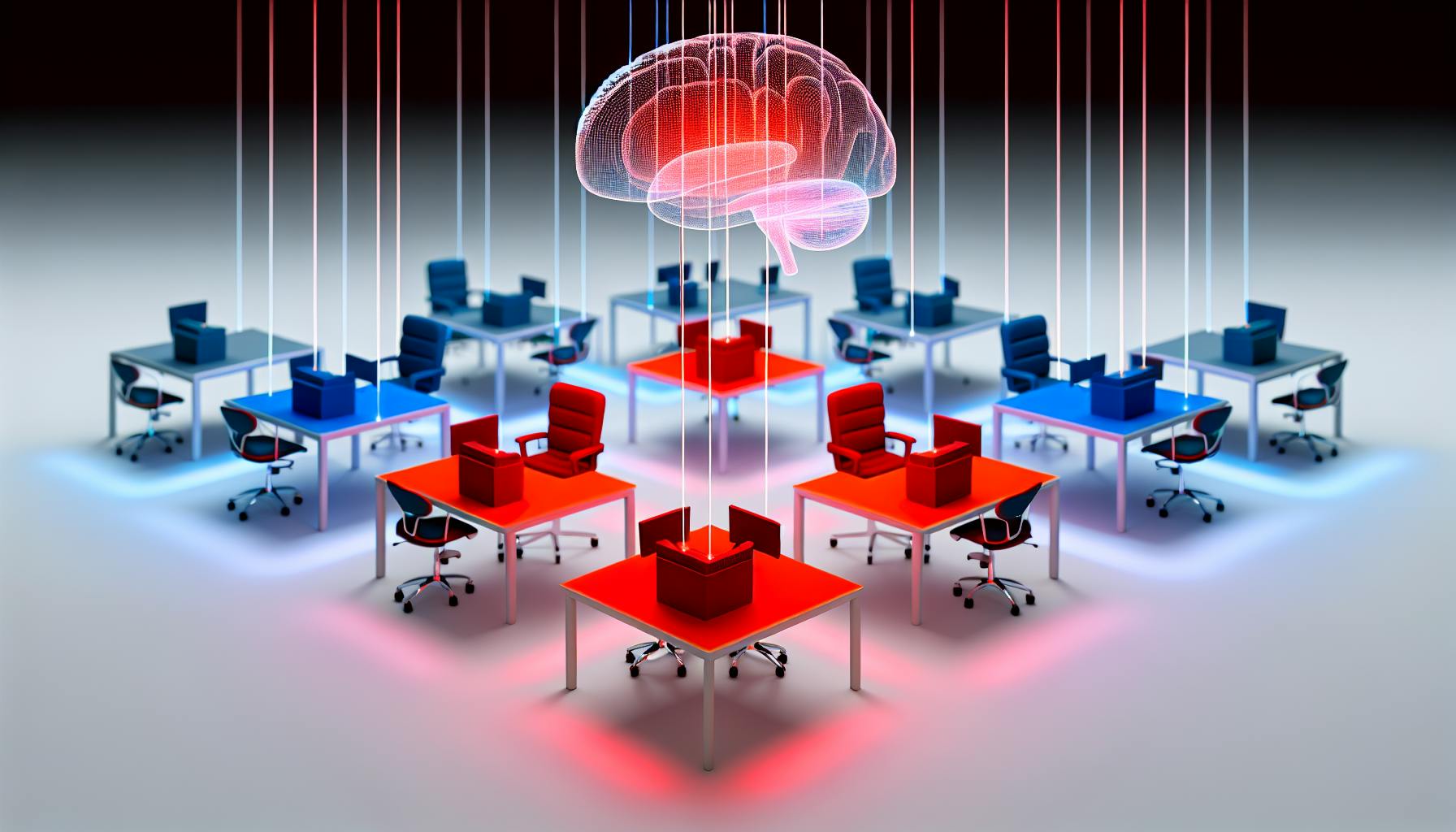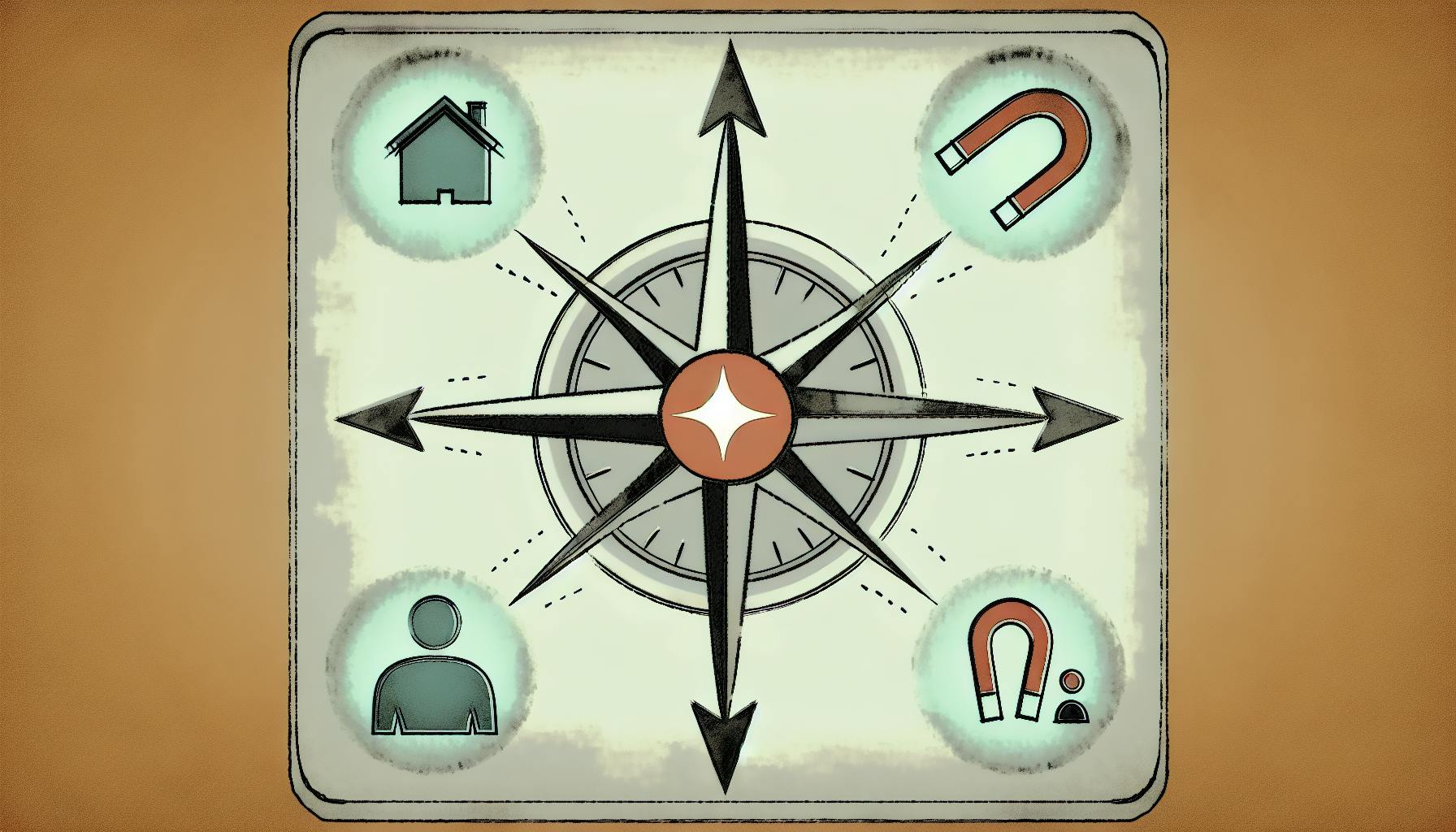While artificial intelligence revolutionizes industries across the globe with a 72% adoption rate, there's a surprising laggard in this digital transformation: Human Resources. Despite being the department responsible for driving organizational change, HR finds itself paradoxically resistant to embracing AI technologies.
This technological hesitancy creates a striking contrast: as marketing, sales, and IT departments surge ahead with AI implementation, HR departments remain notably cautious, with only one in four employers utilizing AI for HR-related activities. This gap raises important questions about the future of human resource management in an increasingly AI-driven business landscape.
Current Trends in AI Adoption
The landscape of AI implementation across industries shows remarkable growth, with 72% of organizations now utilizing artificial intelligence solutions, marking a significant increase from 50% over the past six years. Professional services lead this technological revolution, demonstrating the strongest surge in adoption rates, particularly in marketing, sales, and IT operations.
According to Forbes, only 35% of all employees are trained in AI, yet 75% of companies have implemented the technology, revealing a critical disconnect between workforce readiness and industry demands. This gap is further widened by a 42-point gender disparity in AI skills and a 30% training gap between Baby Boomers and Gen Z. Addressing these inequities in AI education is essential to bridging the divide and mitigating future labor shortages.
The momentum of AI integration spans globally, with over two-thirds of organizations in nearly every region embracing AI technologies. The Asia-Pacific and Greater China regions showcase the most dramatic increases in AI deployment.
In the professional services sector, AI has become increasingly prevalent, transforming traditional business processes and driving innovation. Energy and retail sectors follow closely behind, leveraging AI to optimize operations and enhance customer experiences.
However, human resources departments notably lag behind in this digital transformation. While two-thirds of CEOs see AI adoption as a top priority (McKinsey), SHRM finds HR teams lag, with two-thirds of HR leaders reporting limited awareness or early adoption, and only 1% reaching advanced implementation stages.
Slow Adoption Rates in the HR Sector
Despite the widespread adoption of AI across industries, human resources departments show notably lower implementation rates. Only one in four employers currently utilize AI for HR-related activities, significantly trailing behind other business functions. This gap becomes more apparent when examining specific studies, with just 31% of companies implementing AI in HR functions.
The hesitancy in HR technology adoption is further evidenced by survey data showing that one-third of HR leaders have no immediate plans to implement AI solutions. This reluctance stems from various factors, including limited knowledge about AI capabilities and insufficient resources for proper algorithm auditing. While smaller companies are beginning to outpace larger firms in HR automation, the overall sector continues to lag in digital transformation compared to departments like marketing, sales, and operations.
Reasons for Slow Adoption in HR
The sluggish pace of AI adoption in HR stems from several key challenges. Many HR professionals lack awareness about AI's potential applications and benefits in their field, leading to uncertainty about implementation. This knowledge gap creates hesitation in embracing new technologies that could streamline HR operations.
Financial constraints pose another significant barrier, with many organizations allocating limited budgets for HR technology investments. This resource limitation often forces HR departments to maintain traditional processes rather than innovate with AI solutions.
Cultural resistance within HR departments also impedes progress, as teams worry about the impact of automation on their roles. Some professionals fear being perceived as less valuable or replaceable when incorporating AI tools into their workflow.
Additionally, the complexity of integrating AI with human-centric processes presents unique challenges. HR's need to handle sensitive employee data while maintaining a personal touch makes the transition to AI-powered solutions particularly demanding.
Potential Benefits of AI in HR
AI offers transformative capabilities across HR functions, starting with recruitment automation tools that streamline candidate sourcing, screening, and interview scheduling. These tools significantly reduce time-to-hire while improving candidate quality through data-driven selection processes.
In talent management, AI enables personalized learning paths and precise skill development tracking. The technology creates tailored opportunities for employee growth while helping organizations strategically upskill their workforce to meet evolving business needs.
Employee engagement benefits from AI through the automation of routine tasks, allowing HR professionals to focus on strategic initiatives. Real-time analytics provide insights into workforce sentiment and productivity trends, enabling proactive retention strategies.
Organizations implementing AI in HR have reported measurable improvements, including reduced recruitment costs and enhanced performance management. For instance, several companies have successfully deployed AI to manage employee records and streamline onboarding processes, resulting in increased productivity and improved collaboration across HR functions.
Future of AI in HR
The trajectory of AI adoption in HR shows promising growth, with 92% of HR leaders planning to increase AI implementation across various functions. This technological shift is poised to transform traditional HR operations, particularly in employee records management, payroll processing, and performance assessment.
As AI assumes greater responsibilities in managerial and HR functions, the role of HR professionals will evolve significantly. The automation of routine tasks will push HR teams toward more strategic responsibilities, focusing on organizational development and employee experience enhancement.
HR professionals must adapt by developing new competencies in AI integration and deployment. This includes understanding AI capabilities, determining appropriate implementation strategies, and ensuring responsible AI usage within workforce planning. Organizations are increasingly emphasizing the importance of instilling innovation mindsets and agility among HR teams, preparing them for the technological transformation ahead. Successfully navigating this transition requires a balance between leveraging AI's potential and maintaining the human element in HR operations.
Actions for HR Leaders to Catch Up
HR leaders must prioritize comprehensive AI education programs within their departments to bridge the technology gap. This includes developing structured training modules focusing on AI fundamentals, practical applications, and hands-on experience with AI tools. Organizations should allocate sufficient resources by justifying AI investments through clear ROI metrics and potential productivity gains.
Successful implementation requires a methodical approach, starting with pilot programs in specific HR functions before rolling out broader initiatives. Leaders should address resistance through transparent communication about AI's role in enhancing rather than replacing human capabilities. Regular training sessions and low-stakes practice opportunities help build confidence among HR professionals.
Collaboration with IT departments proves crucial for effective AI integration. By partnering with technical teams, HR can leverage existing infrastructure while ensuring proper data security and compliance measures. Cross-functional teams can work together to identify optimal AI solutions and create implementation roadmaps that align with organizational goals.
The Path Forward: Bridging HR's AI Implementation Gap
The stark reality of HR's delayed AI adoption presents both a challenge and an opportunity for organizations worldwide. While the current landscape shows concerning gaps in implementation, with only 1% of HR departments achieving advanced AI integration, the future holds promise. The projected 92% increase in AI implementation among HR leaders signals a turning point in the industry's approach to digital transformation.
To successfully navigate this transition, HR departments must prioritize AI education, secure adequate resources, and foster collaboration with IT teams. The key lies not just in adopting new technologies, but in transforming HR's role from traditional personnel management to strategic business partnership through intelligent automation and data-driven decision-making.
Struggling to keep your HR team ahead in an AI-driven world? Our tailored AI training equips HR leaders with the tools to drive innovation, improve decision-making, and stay competitive. Discover how to transform your HR function—reach out today.

